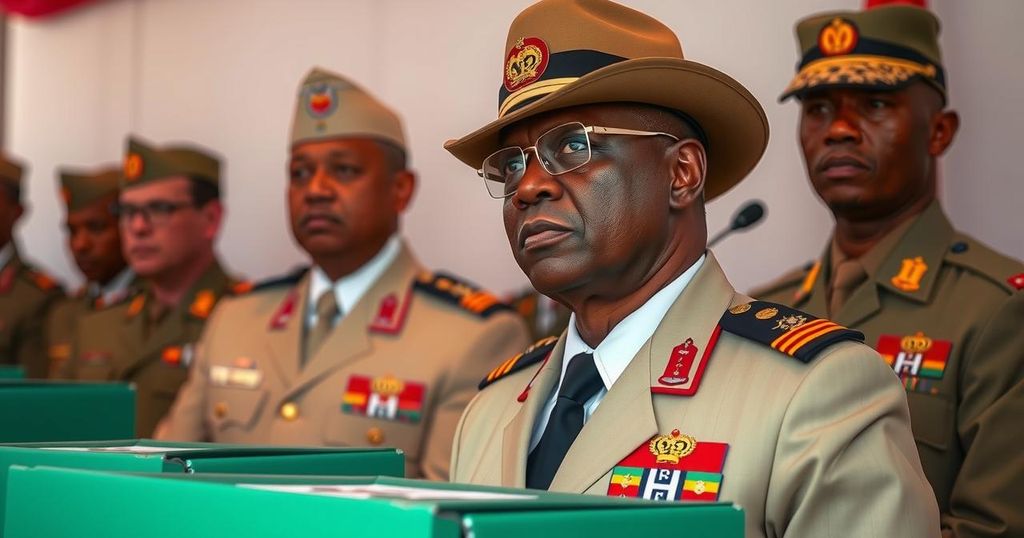Chad Holds Boycotted Parliamentary Elections as Military Rule Ends

Chadians voted in parliamentary elections on Sunday amidst a boycott by major opposition parties citing a lack of credible electoral oversight. This marks the conclusion of a three-year military transitional period, with serious implications on the future democratic process in Chad. Opposition leaders view the elections as a mere facade for maintaining the ruling junta’s power.
Chadians participated in parliamentary and regional elections on Sunday aimed at concluding a three-year transition from military rule. However, the majority opposition, including the prominent Transformers party, opted to boycott the elections, alleging the lack of an impartial electoral process. These elections, the first in over a decade, follow a contentious presidential election held earlier, where the current junta leader, Mahamat Idriss Deby, came to power after the death of his father, long-term president Idriss Deby Itno, in 2021.
Given that Chad has not experienced a legitimate transfer of power since attaining independence from France in 1960, the elections are considered significant for the oil-exporting nation of 18 million. With 8 million registered voters tasked to elect 188 members for the National Assembly, results are anticipated within a fortnight. Nevertheless, major opposition parties assert that the polls are merely a façade for Deby to maintain his grip on power.
Deby’s administration faces numerous challenges, including security threats from Boko Haram and a shift in relations with France. Political analyst Mahamat Oumar Adam indicated that the critical concern is preserving democracy rather than prolonging the transition that began in 2021. He emphasized that the main drawback is the conspicuous absence of opposition in the electoral process, which raises questions about its legitimacy and effectiveness.
Chad, an oil-exporting nation grappling with poverty, has been under military rule since the death of longtime president Idriss Deby in 2021. Recently, the country sought to transition back to democracy through elections. However, opposition parties have accused the ruling government of undermining the electoral process, asserting that the elections lack credibility and are designed to facilitate the ruling junta’s continued dominance. This electoral event marks the first parliamentary election in over a decade, highlighting the complex political landscape of the Sahel region.
The parliamentary elections in Chad represent a pivotal moment in the country’s political history, attempting to transition from military rule to democratic governance. Despite the significance of these elections, the boycott by principal opposition parties raises substantial concerns regarding the fairness and integrity of the electoral process. As Chad navigates numerous security and diplomatic challenges, the outcome of these elections may determine the future trajectory of its governance and stability.
Original Source: abcnews.go.com







